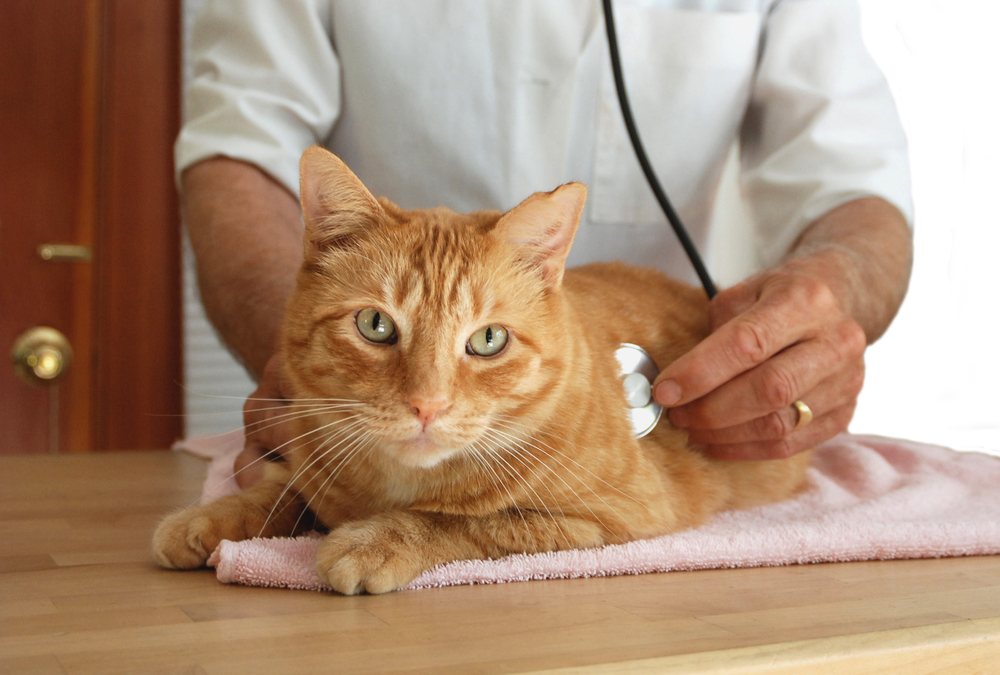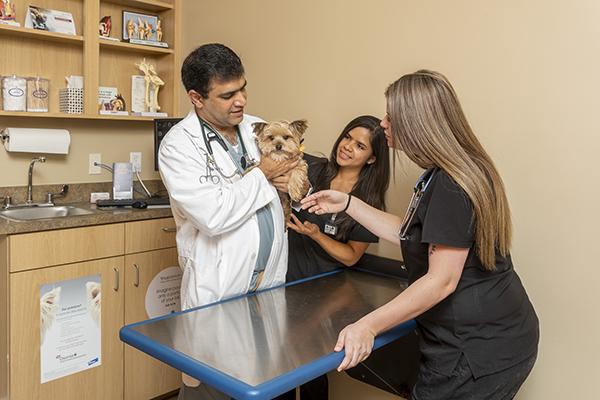Hearing your pet cough can be concerning. However, depending on the cause of your animal’s cough that is not always the case. Coughing every now and again is normal in pets. If your pet is continually coughing and doesn’t seem to be improving, there could be a serious underlying condition that is creating problems in their respiratory systems.
Common Reasons Your Pet Is Coughing
Some viruses, bacteria, or other health conditions can cause an animal to cough. These are the most common reasons why a pet may be coughing.

Inhalation of Dust, Allergies
Dust or allergies are the most minor cause of coughing in an animal. Just like humans, sometimes pets may get a whiff of dust that triggers a cough. When Spring comes, allergies outside may also cause coughing and sneezing as their bodies inhale outside particles.
Choking on Food
Sometimes pets cough because they ate their food too quickly and it got stuck down their throats. Coughing may help an animal get the food that’s stuck out of their throats and ease their coughing.
Pneumonia
Pneumonia can be caused by a host of bacterial or viral pathogens that cause inflammation in the lungs. This infection causes a build-up of fluid in the lungs, irritating an animal’s breathing patterns. This lung irritation from the infection leads animals to have a wet cough as they try to get the buildup of mucus out of their systems.
Kennel Cough
Kennel cough can cause a dry and raspy cough in dogs. This may not occur in all types of animals but can be common for dogs in high-population areas like a kennel. Kennel cough is a contagious infection of the windpipe and usually goes away in the span of one to two weeks.
Influenza
Influenza, or the flu, can lead to lethargy, fever, and coughing in animals. In some cases, influenza can be serious and progress too quickly. If your animal is seriously coughing and displaying other signs of the flu, contact your vet immediately.
Heart Disease
When the heart muscles become enlarged or inflamed from heart disease, compression in the surrounding lungs can build up with fluid. Heart disease can cause continued coughing, alongside lower energy or stamina when they are active.
Trachea Collapse
The cartilage that makes up the windpipe can collapse, otherwise known as a tracheal collapse. When a trachea collapses it can trigger symptoms similar to asthma like trouble breathing and chronic coughing. Depending on the cause of the tracheal collapse, treatment may involve antibiotics, steroids, or even weight loss if a pet is overweight.
Heartworm
Spread by mosquito bites, heartworm cause persistent coughing and serious weight loss in animals. If you live in a climate with many mosquitoes or plan to travel with your pet to a climate with many mosquitos, it may be worth discussing with your vet about any preventative medications or injections for heartworm.
What Are the Types of Pet Coughs?
Sometimes the type of cough a pet has can help indicate the underlying cause. If your pet is coughing constantly, listen closely to what it sounds like and any associated coughing patterns.
- Hacking Cough
- Phlegm-Filled Cough
- Gagging Cough
- Deep Cough
- High-Pitched Cough
- Wheezing Cough
- Coughing While Asleep
When Should You Contact a Vet For Your Pet’s Coughing?
A mild cough is typically not any cause for concern with pets. If they eat too quickly, their cough will subside shortly. If you sense your pet’s cough may need further attention, these are some signs and symptoms to look out for:
- Trouble Breathing
- Wheezing
- Dramatic Loss of Energy
- Coughing Up Blood
- Runny Nose or Watery Eyes
- Cough Doesn’t Improve Over Time
Treating Animal Coughs
The good news is that most causes of coughing are easily diagnosable and treatable under the supervision of a vet. If your pet has an infection, antibiotics may be administered to kill the bacteria that is causing the inflammation. Antivirals, steroids, or other medications may also be administered to keep the coughing at bay. The treatment that will best suit your pet will depend on the individual case and the underlying cause of their persistent cough.

